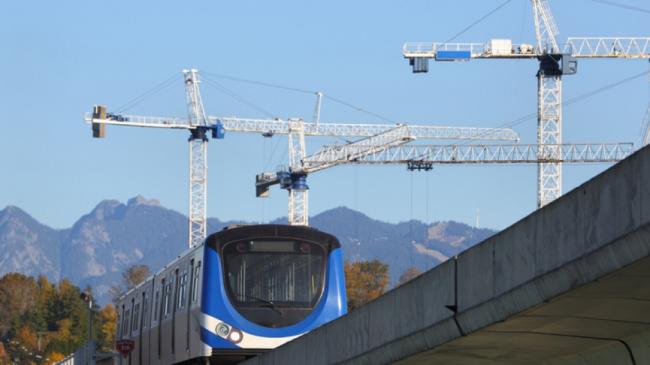Articles Menu

That’s the conclusion of a Business Council of British Columbia (BCBC) report released July 29 with two dozen recommendations to reignite B.C.’s economy. Key issues embrace policymakers working with business and others to support job restoration and employment growth.
The pandemic has created a world where “it’s everyone for themselves,” he said. “The biggest challenge we’ve got I getting people back to meaningful employment.”
So, the business council said, Victoria needs to bring the same commitment it made to fighting COVID-19 to boosting B.C.’s now-sagging economy.
“A similar commitment to collaboration with common purpose is now required to repair the economic damage done by the pandemic and position British Columbia to thrive in an era of rapid technological change and notable shifts in the way we live, work, consume and play,” the report said.
And that means “reviving B.C.’s big economic engines will be critical to a sustained labour market turnaround. These include large industries like construction and retail services. They also include our low carbon industries that supply the exports of goods and services that B.C. relies on to pay for imports and to generate income for communities, families and workers. In fact, B.C.’s ‘tradable industries’ are central to the province’s overall economic prosperity and that of communities and households.” the report said.
BC Economic Plan by Emma Crawford Hampel, BIV.com on Scribd
The pandemic’s effects in B.C. alone have been enormous: the economy shrinking by 6% to 8%, a potential $12.5 billion 2020-21deficit; 235,000 job losses, and a 13% unemployment rate.
“It will take time for the economy to return to its pre-recession level of activity,” the report said. “More concerning is that several years may pass before employment fully recovers. One reason why the COVID-19 recession will be around three times worse than the downturn B.C. suffered during the 2008-09 global financial crisis is because the international backdrop is much weaker.”
BCBC reached out to stakeholders – “academics, business leaders, Indigenous leaders, young people,” D’Avignon said – asking what Victoria should address to move forward in a post-COVID world.
What emerged were four themes: pride in B.C.’s pandemic response: adapting to the change underway in business, education, work, and consumption; supporting businesses, encouraging the rehiring of furloughed workers, and spurring new job creation, training and business formation; and assisting in the digital shift and assuring greater self-sufficiency in critical health and medical goods.
Those themes played out into five areas of recommendations.
Spur economic recovery
• PST reform;
• Accelerating capital spending, infrastructure development and private sector investment to kick-start economic recovery;
• Extending tax remittance deferrals for businesses significantly affected by the pandemic and the associated recession to the end of 2020;
• Instituting a moratorium on all administrative, regulatory and policy changes that add or raise costs for the private sector to support the job and business recovery process, and;
• Quickly finding additional locations for child daycare services.
D’Avignon said the tax system is outdated, created while Queen Elizabeth II was a princess. A change would put money in people’s pockets while providing governments with revenue they need, he said.
“We’re in a massive crater here economically here,” he said. “Let’s put dollars back in people’s pockets. It helps business.”
Improve conditions for hiring and private sector investment
• In the next two years, develop a plan for a made in B.C. value-added tax to replace the PST;
• Reform municipal government;
• Protect the industrial land base in Metro Vancouver;
• Expedite regulatory approval system for qualified operators;
• Support the creation of an Indigenous Economic Development Centre of Excellence, and;
• Make B.C. a top-tier location for investment and production in the forest sector.
D’Avignon said municipal structures need revamping to remove lengthy permitting processes
Empower people, talent and skills
• Review the structure, mandates, funding, and delivery models in the public post-secondary education system;
• Rapid reskilling for workers;
• Make B.C. a leader in work-integrated learning;
• Continue childcare expansion, and;
• Address uncompetitive personal taxes.
Accelerate homegrown innovation
• Establish and fund the operation of innovation precincts;
• Boost investment in strategic digital infrastructure, and;
• Encourag the growth of technology-focused small and medium-sized enterprises.
Make the world cleaner and protect the environment
• Maximize B.C.’s low-carbon advantage to level the playing field for low-carbon export businesses and employees;
• Make B.C. the first jurisdiction in the world to fully digitize land use, environment, and climate approvals and regulations;
• Support development of infrastructure and solutions that speed the adoption of alternative fuels for vehicles, aircraft, vessels and trains as well as land-based business operations;
• Establish and implement a credible system that enables the purchase of carbon credits or offsets, and;
• Develop a global centre for clean energy and clean technology innovation.
D’Avignon said B.C. has access to tech-savvy people and data systems capable of streamlining government and business decision-making.
He said the benefits make the business case for connectivity to areas of the province without it.
The research found B.C.’s strengths include rich resources, proximity of ports to Asia, a well-educated workforce and good schools, abundant hydroelectricity, flourishing innovation, a “solid but not perfect social safety net,” and rule of law backed by effective public institutions.
“There’s lots of hope here,” D’Avignon said. “We’ve got some major strengths.”
But there are weaknesses including insufficient progress in ensuring Indigenous peoples are at the heart of the economy; complex, outdated, delay-prone and increasingly costly regulatory systems, inefficient and uncompetitive taxes deterring investment; failure to take advantage of B.C.’s assets in digital, life sciences, and clean technologies; and high housing costs in urban areas.
“In the last decade, B.C. has become a high-cost jurisdiction for many important industry sectors, including some that employ large numbers of people, drive innovation, and supply most of the exports that help to pay the province’s bills,” the report said.